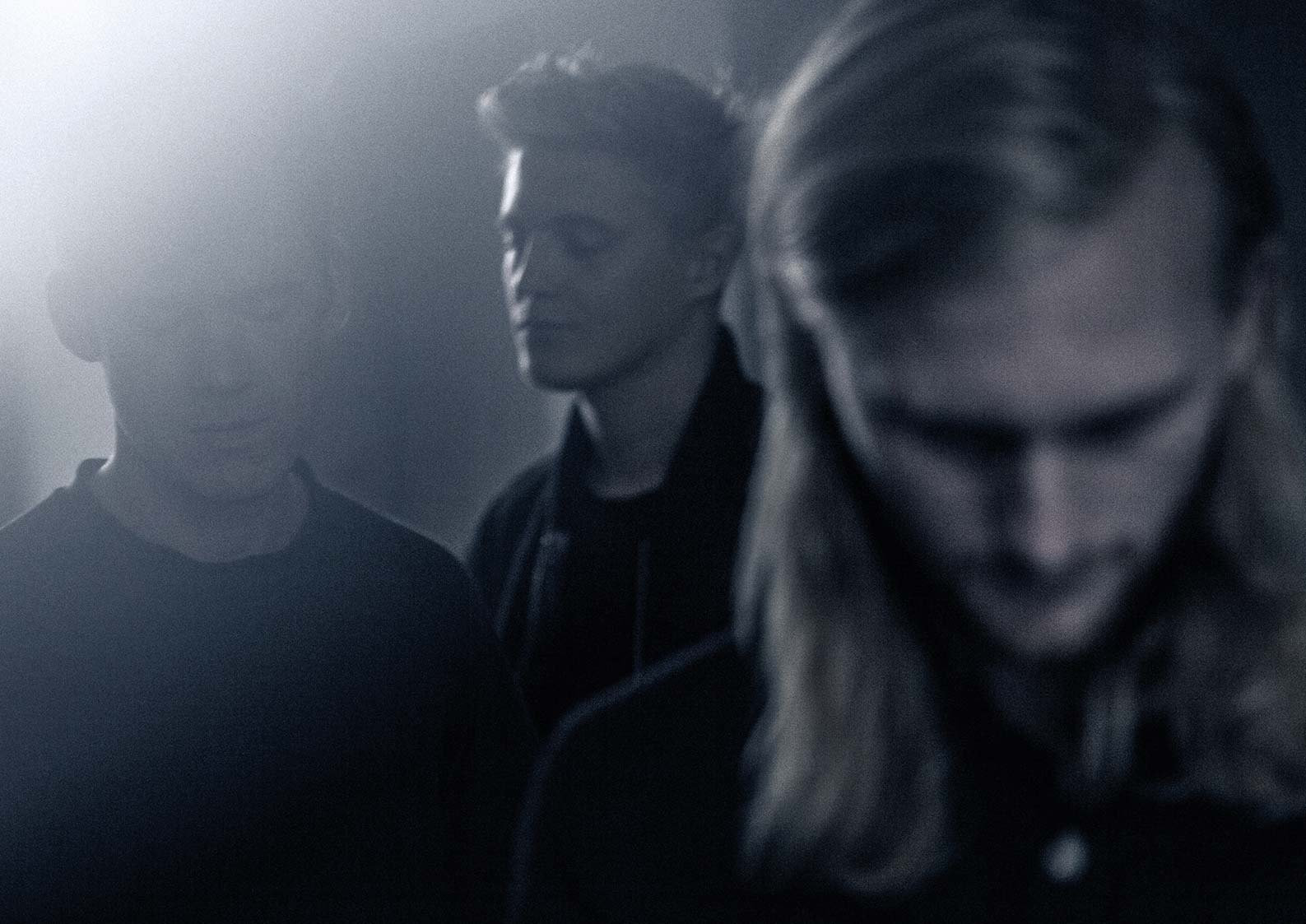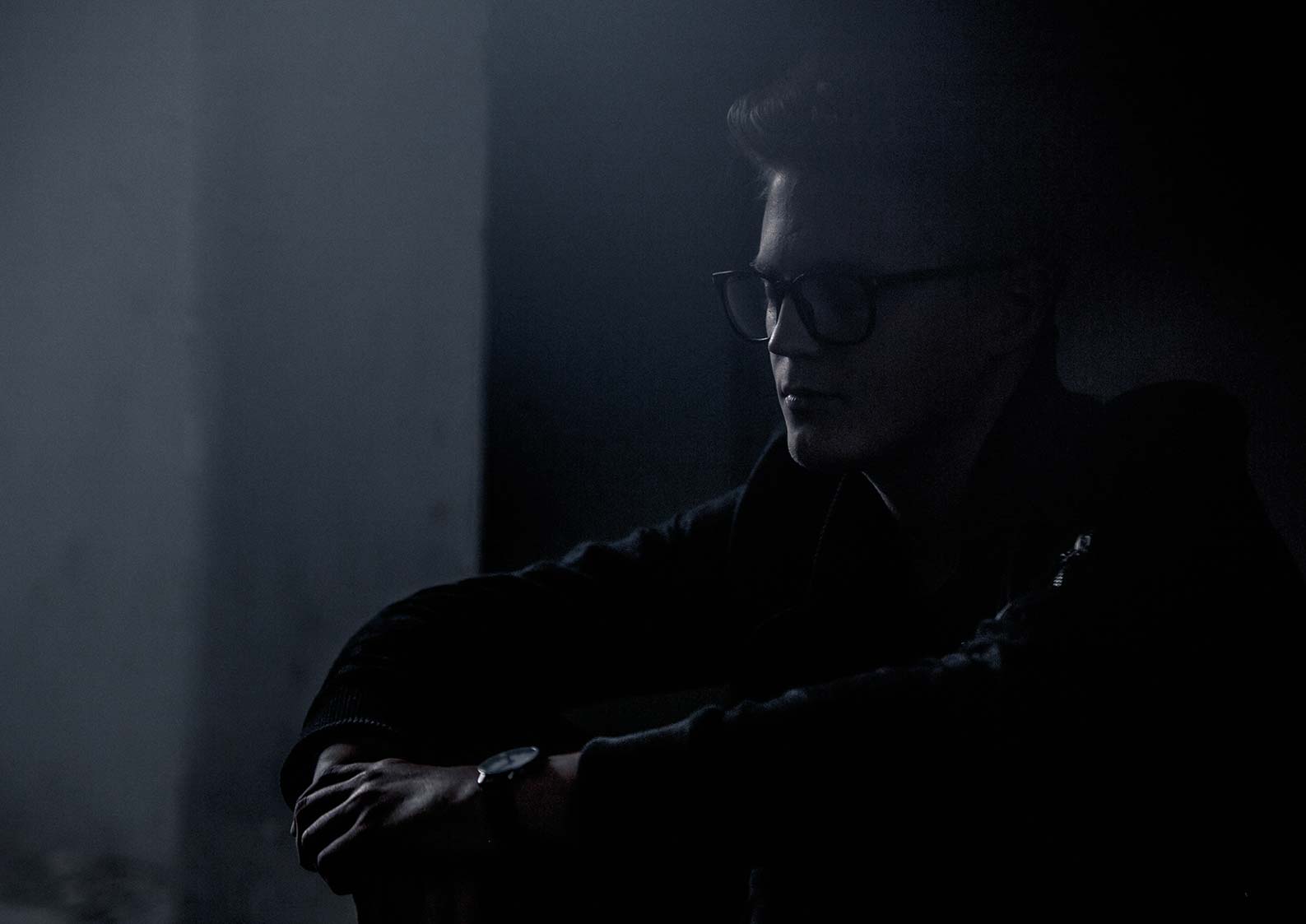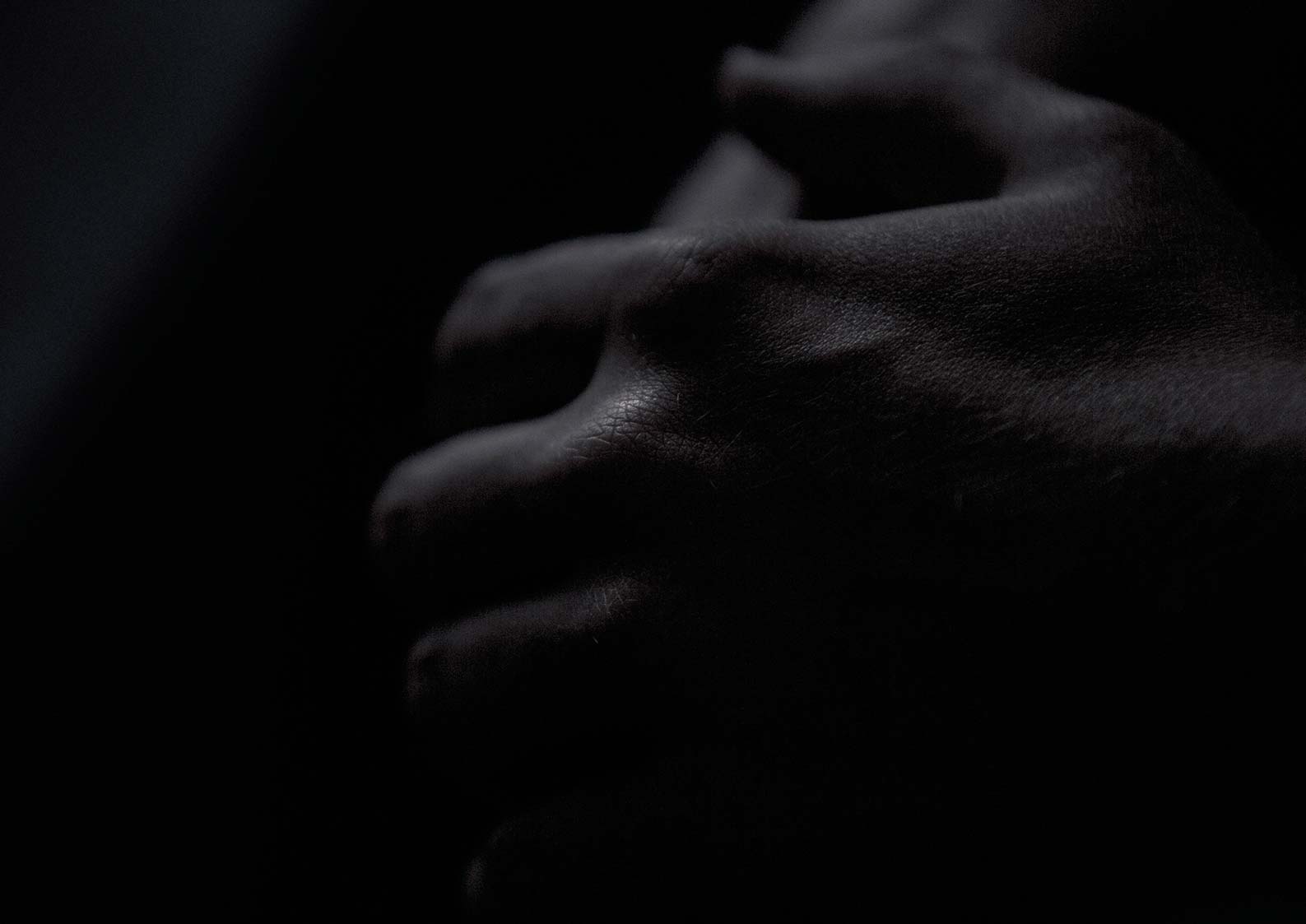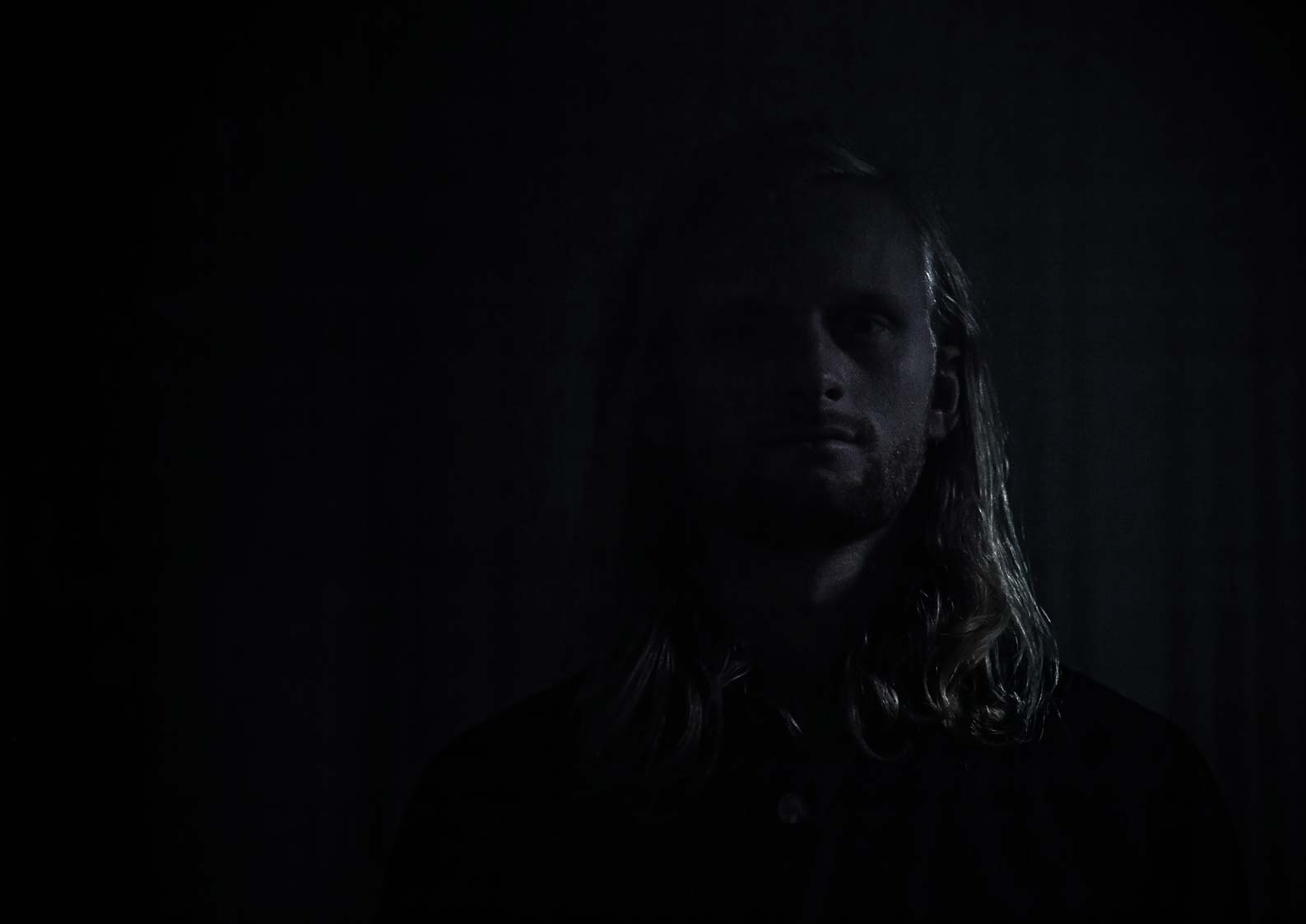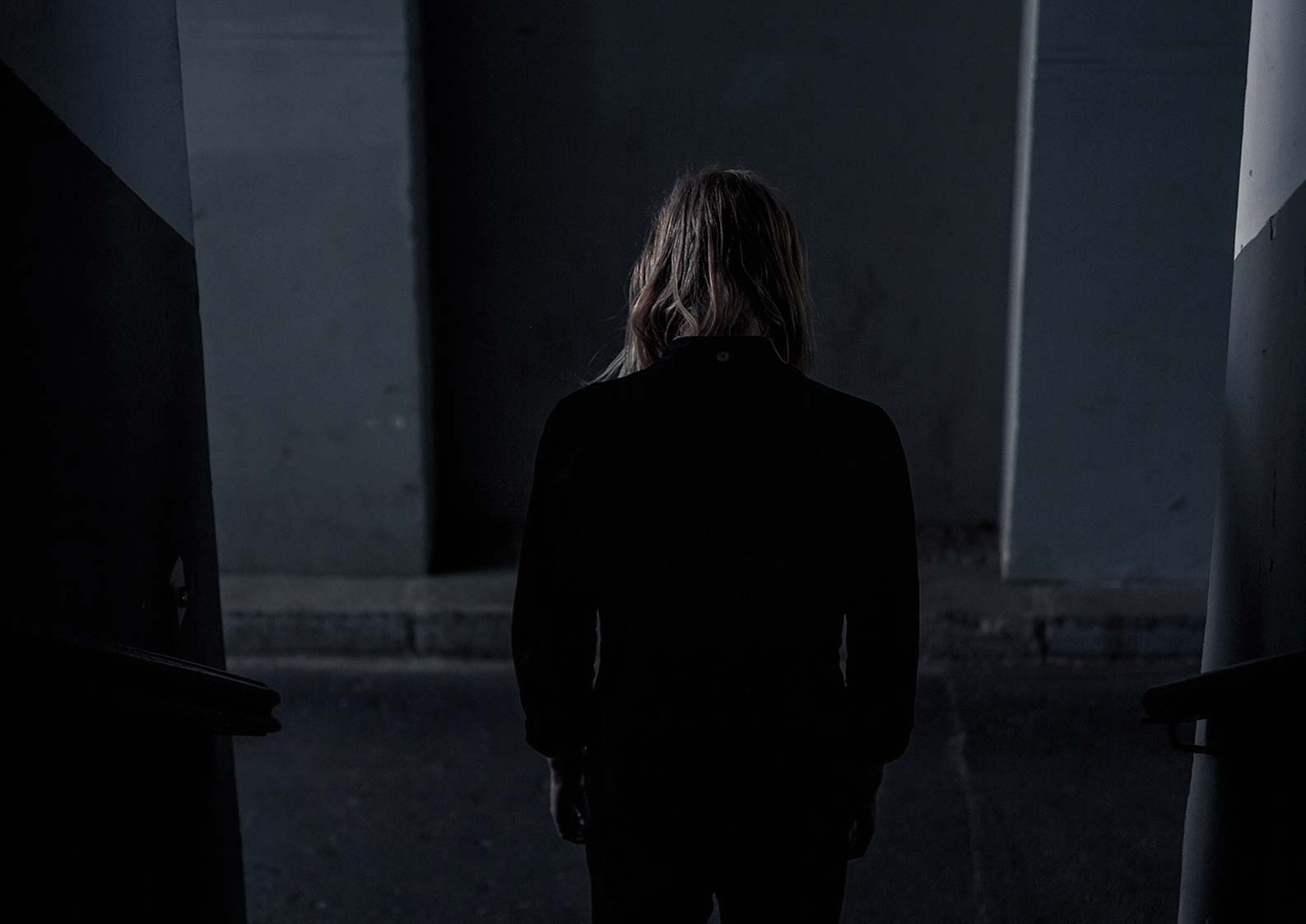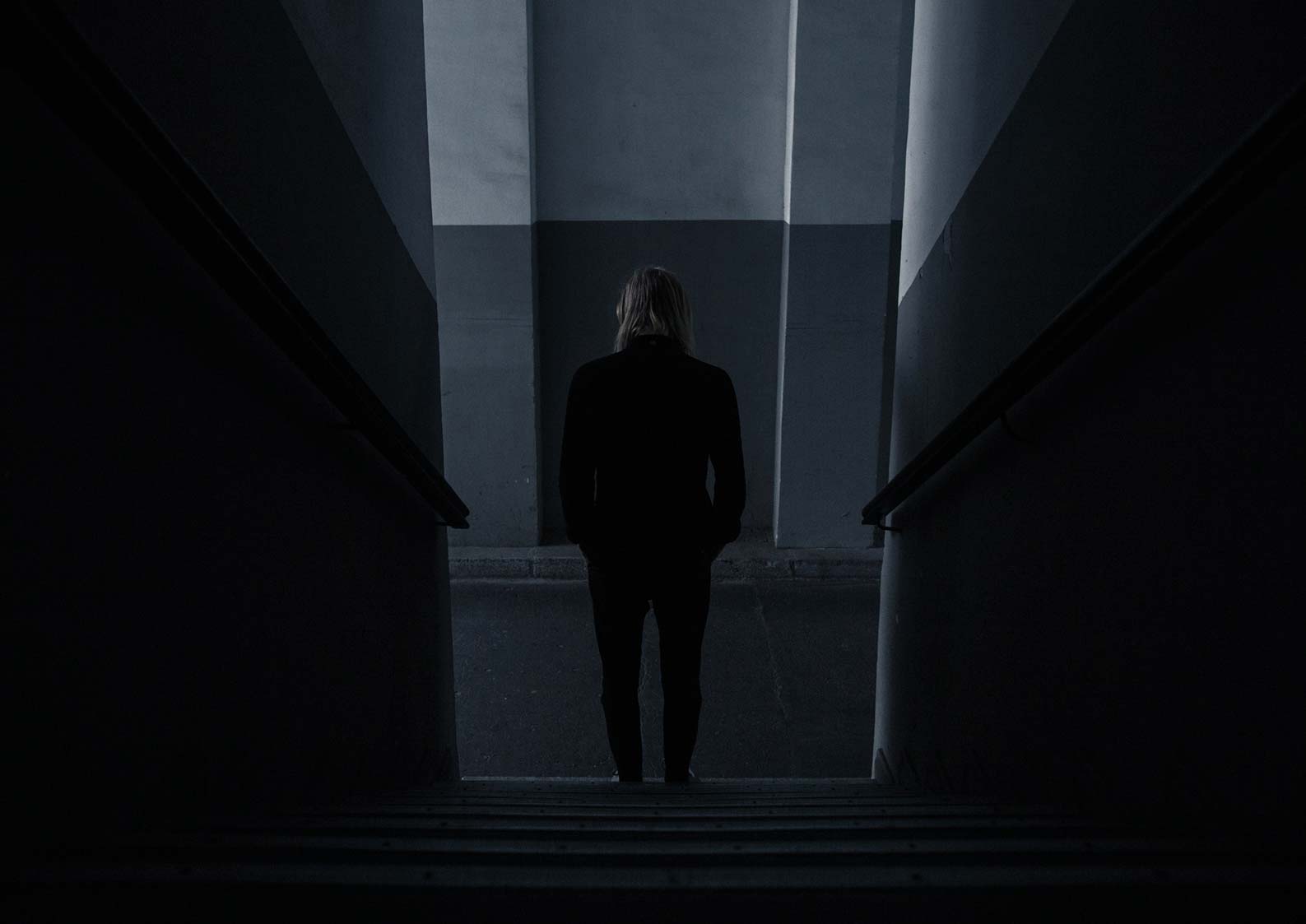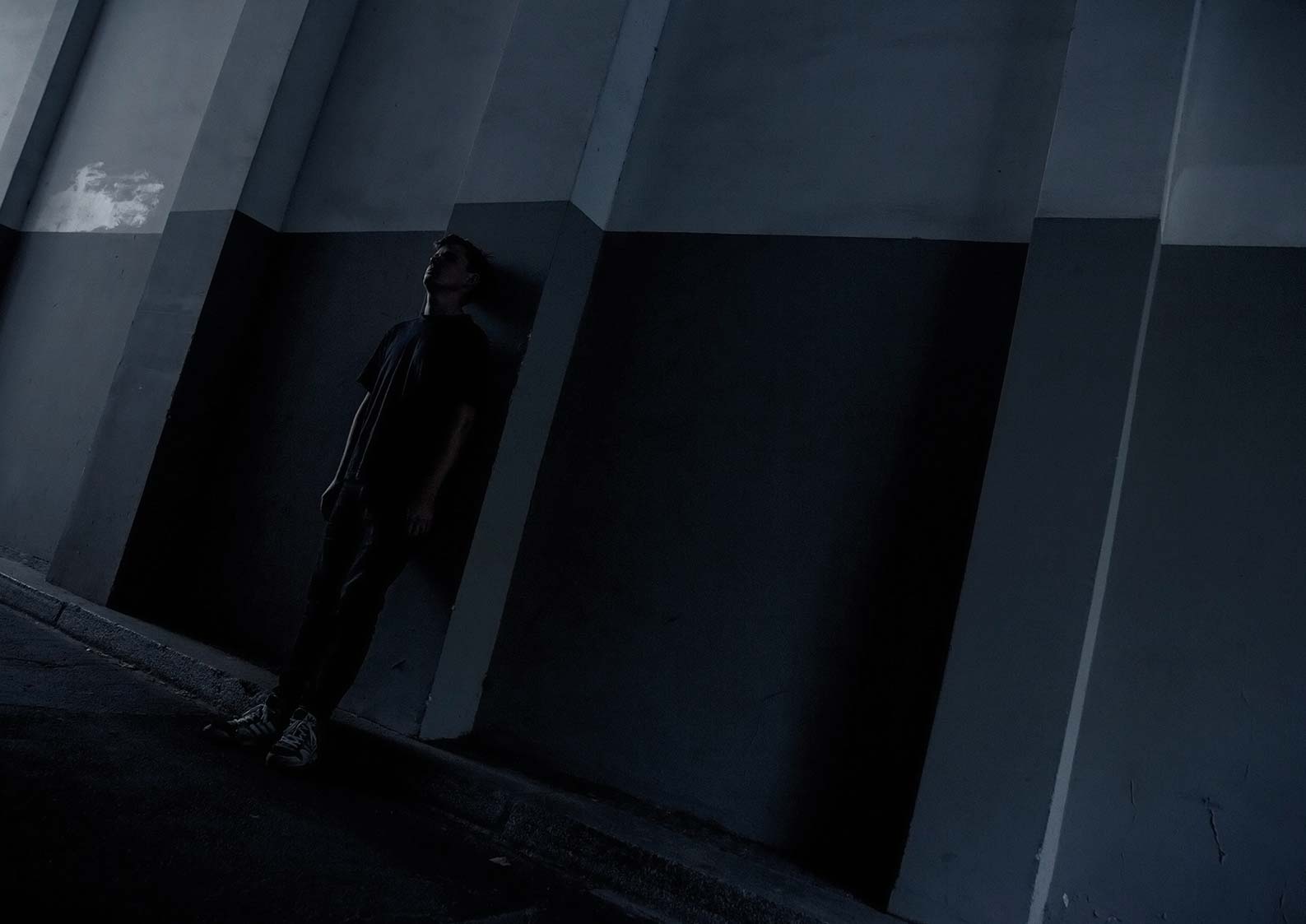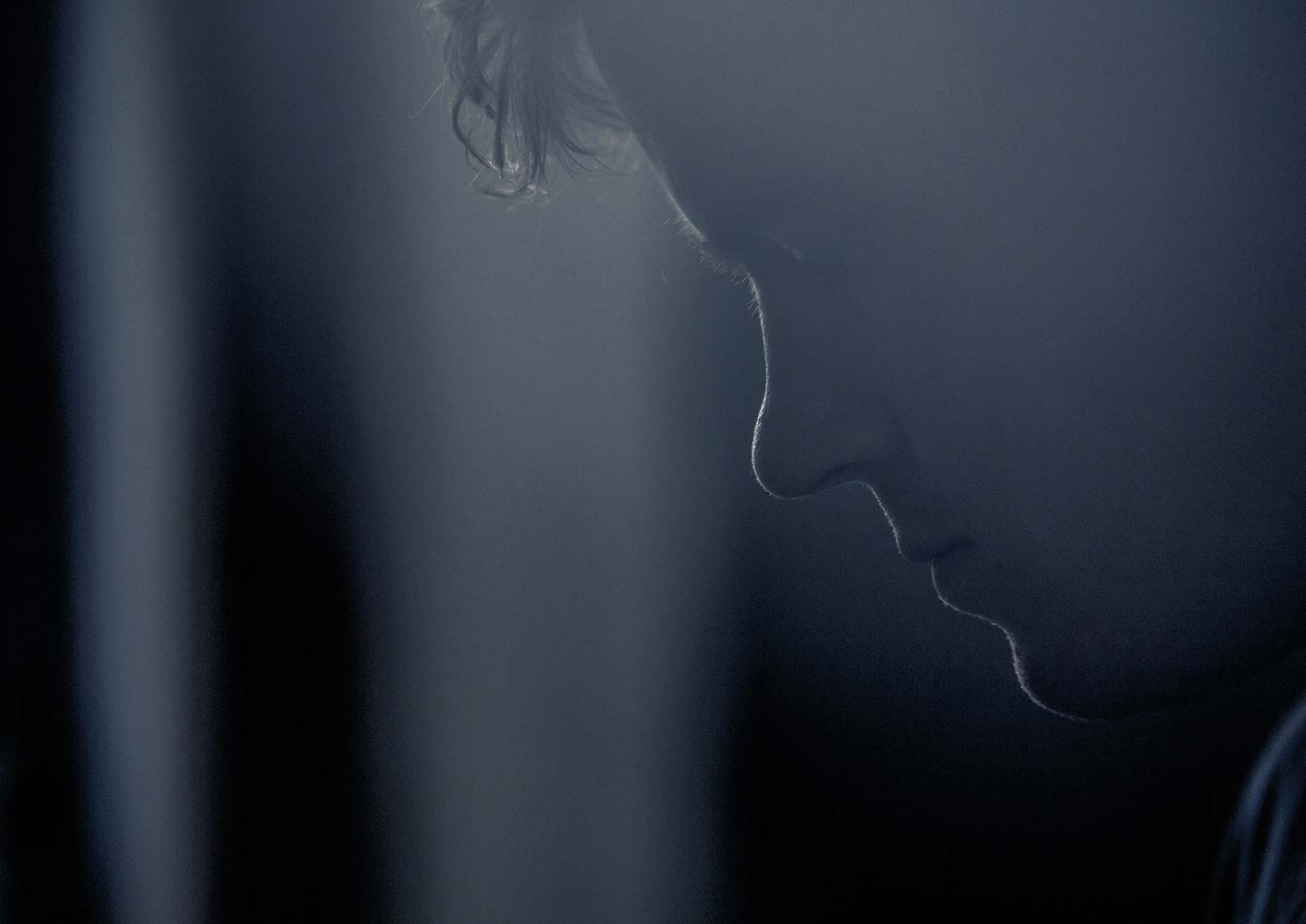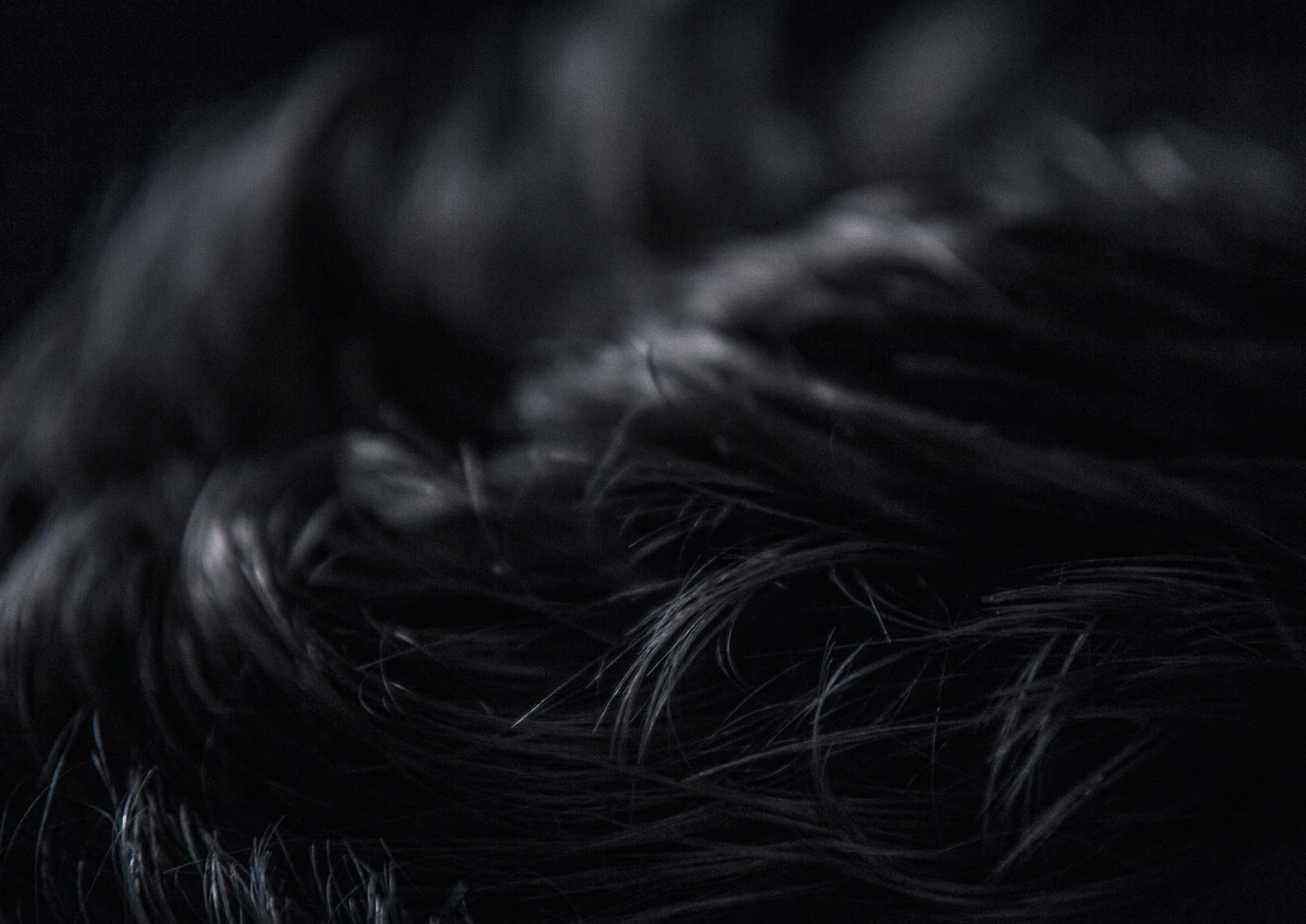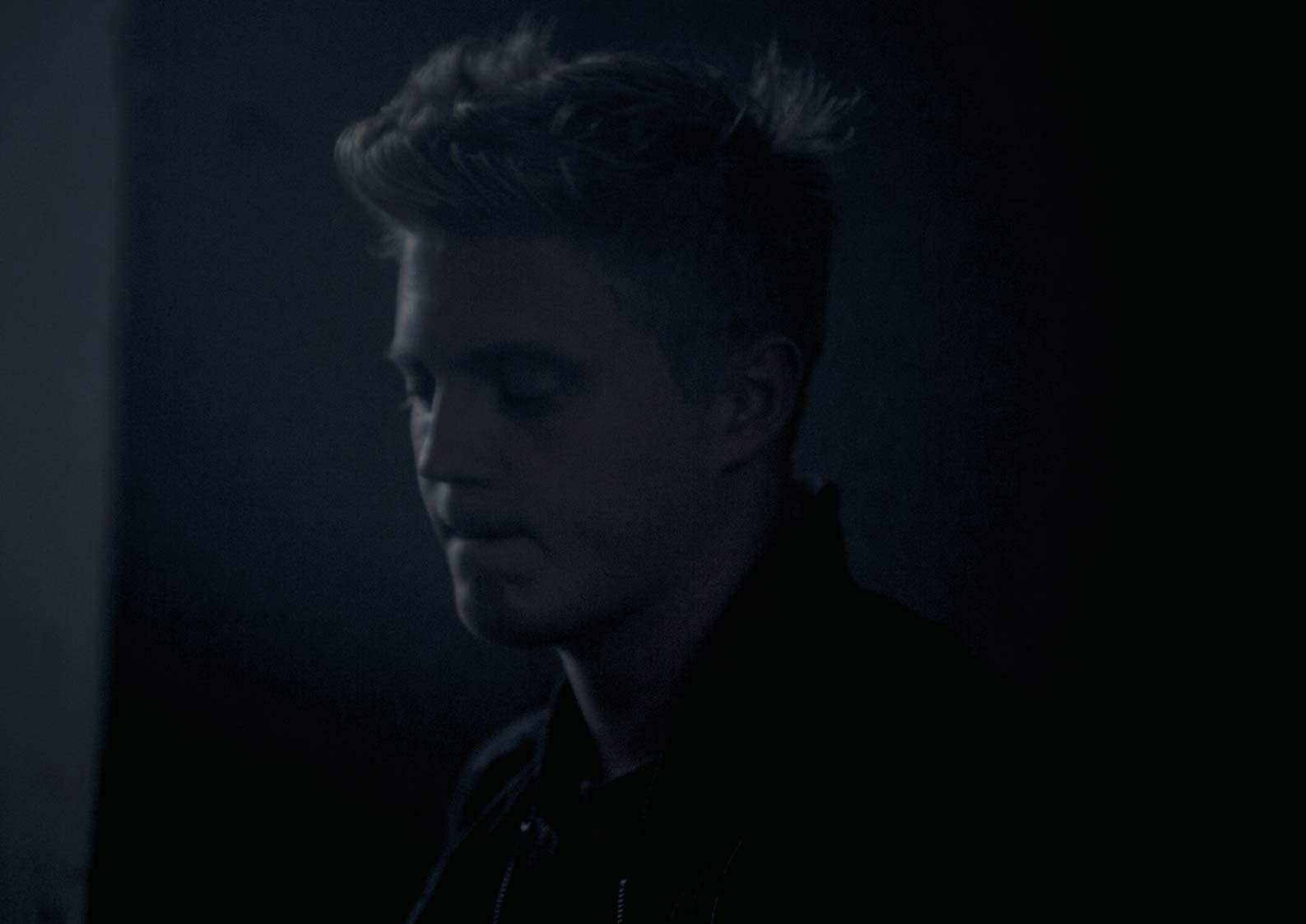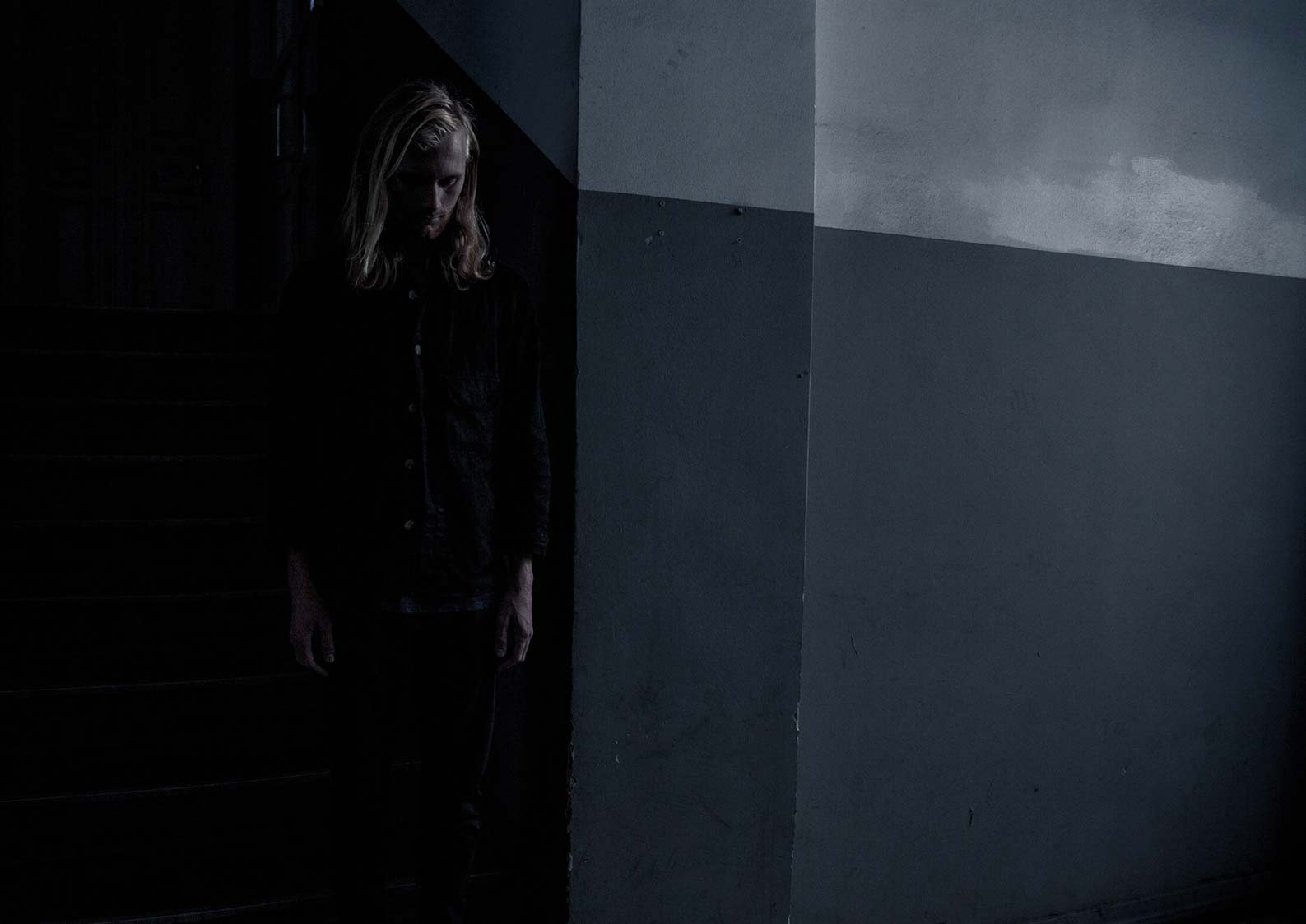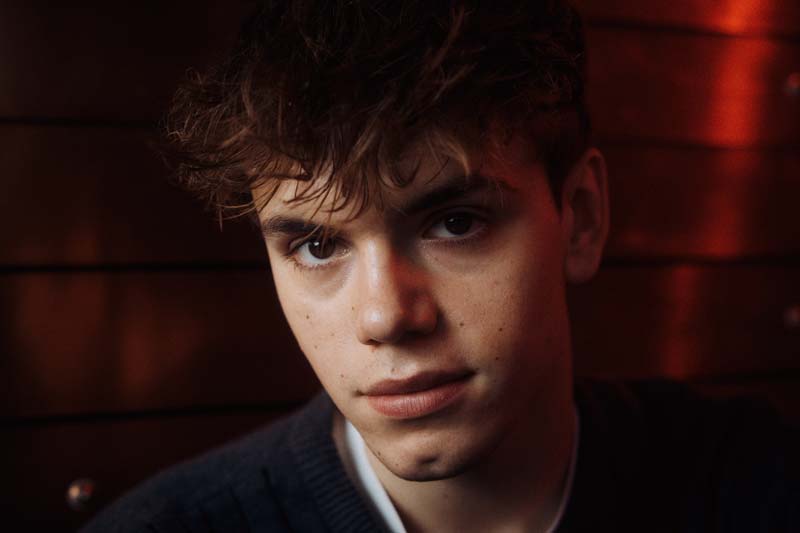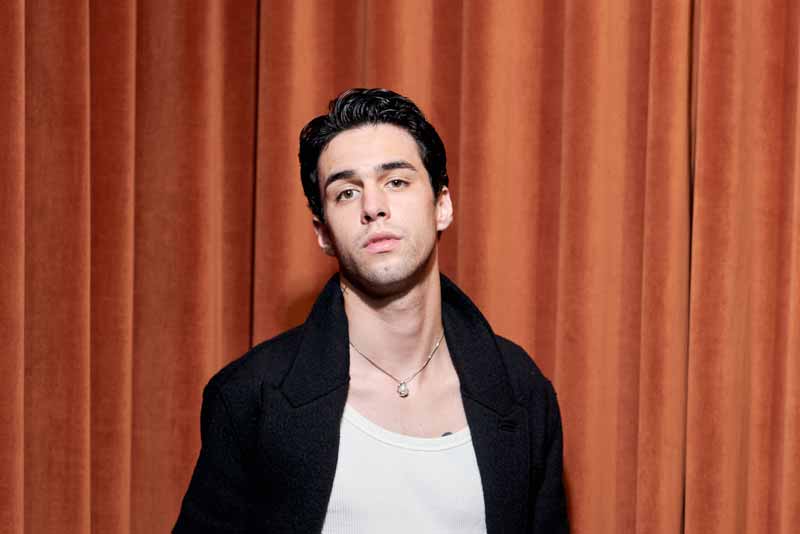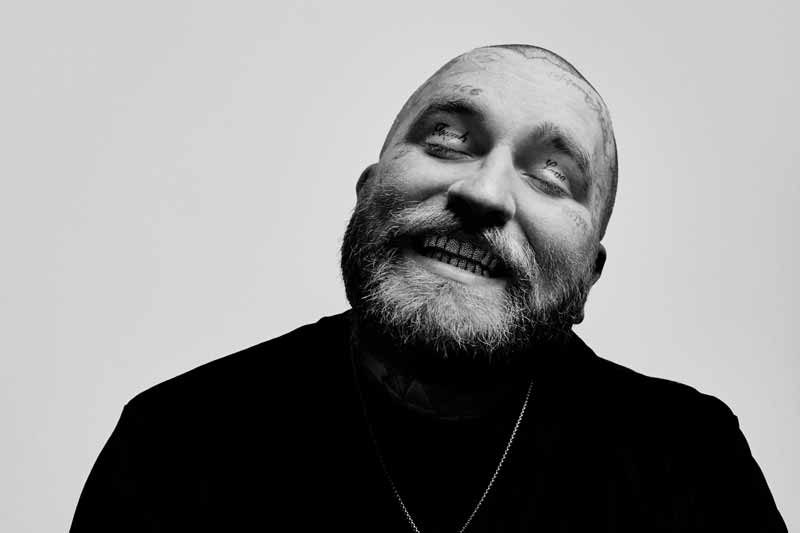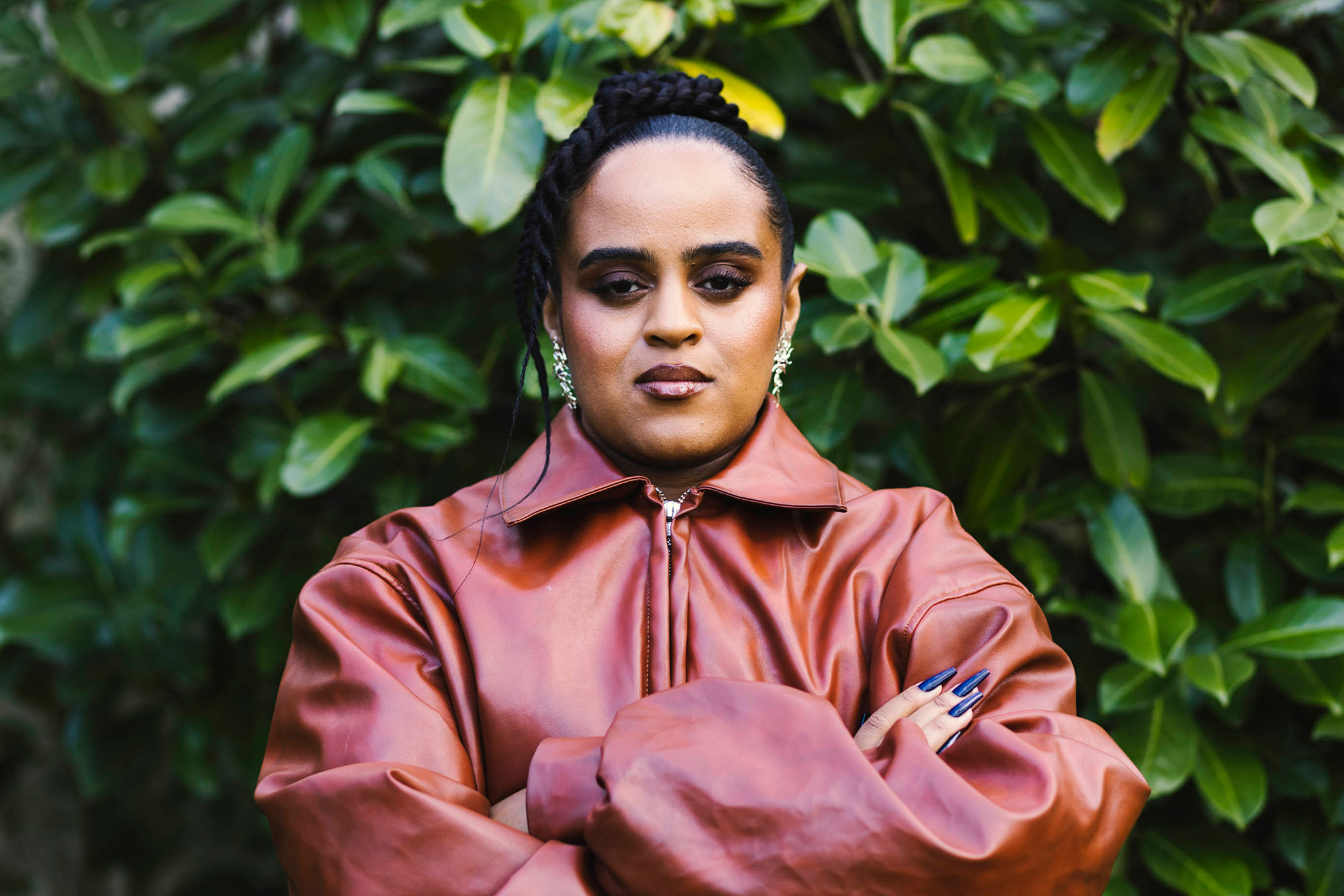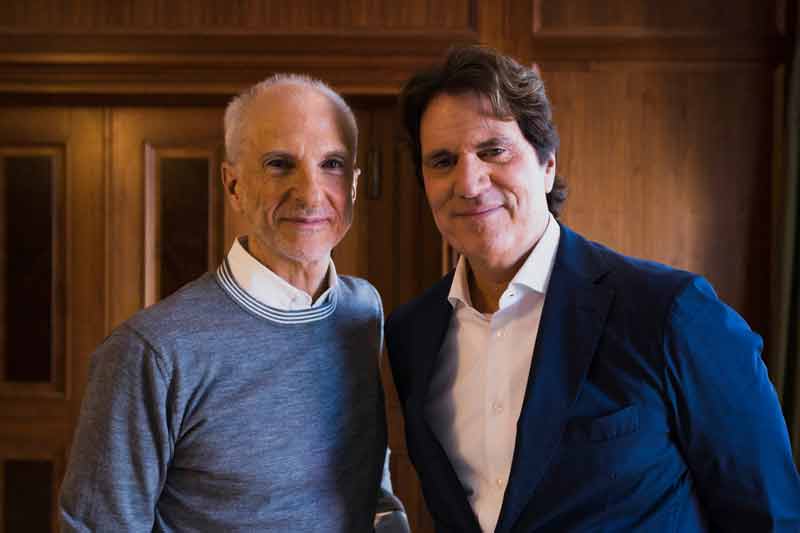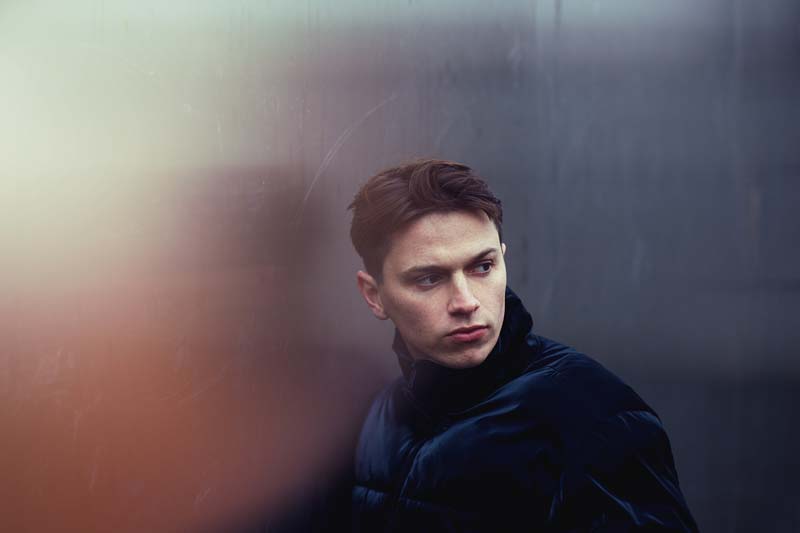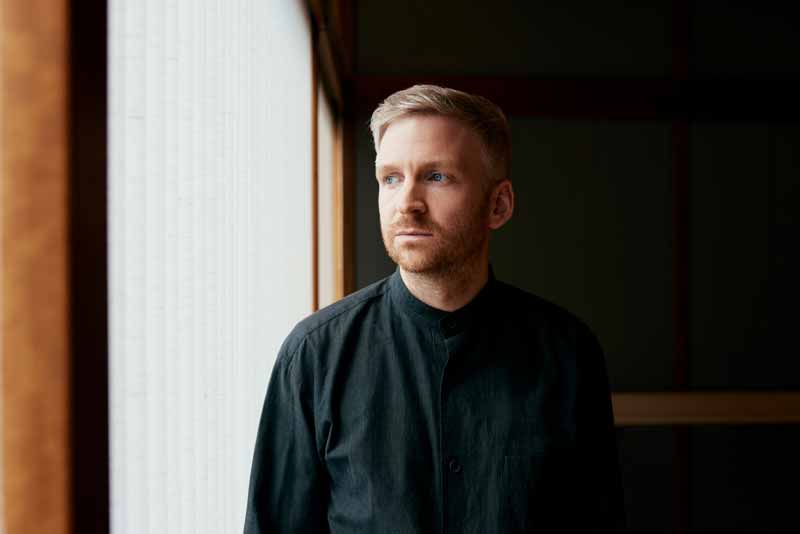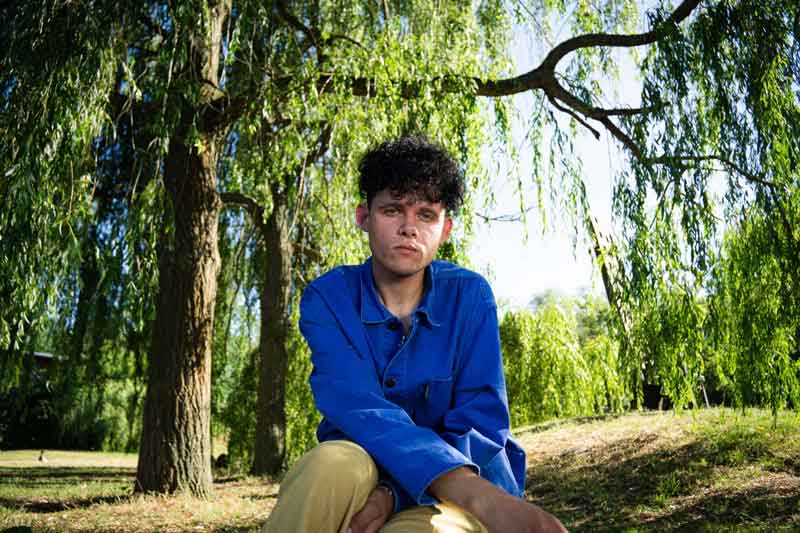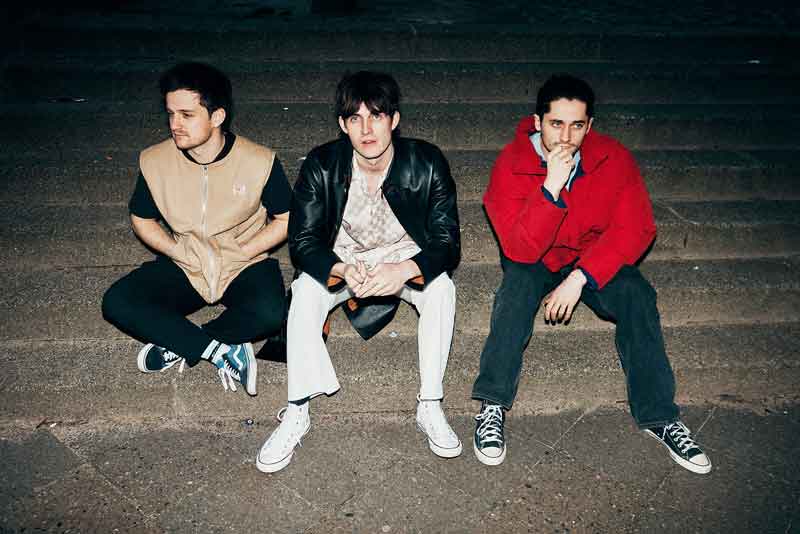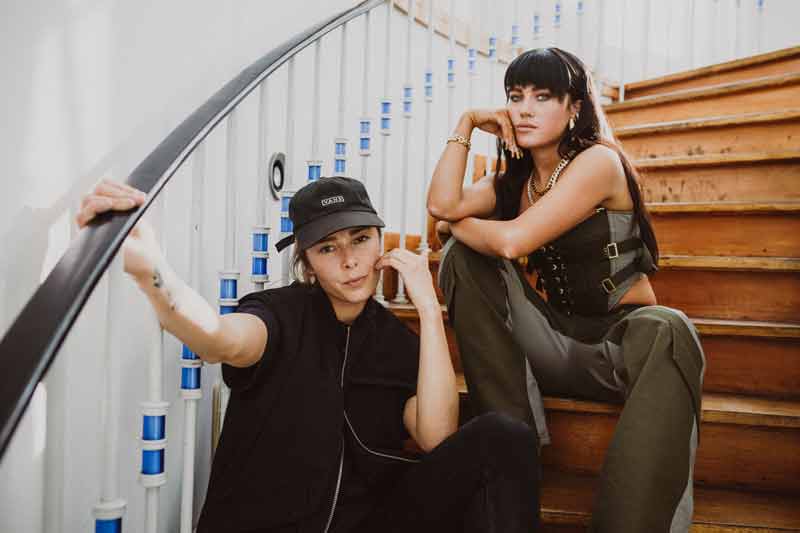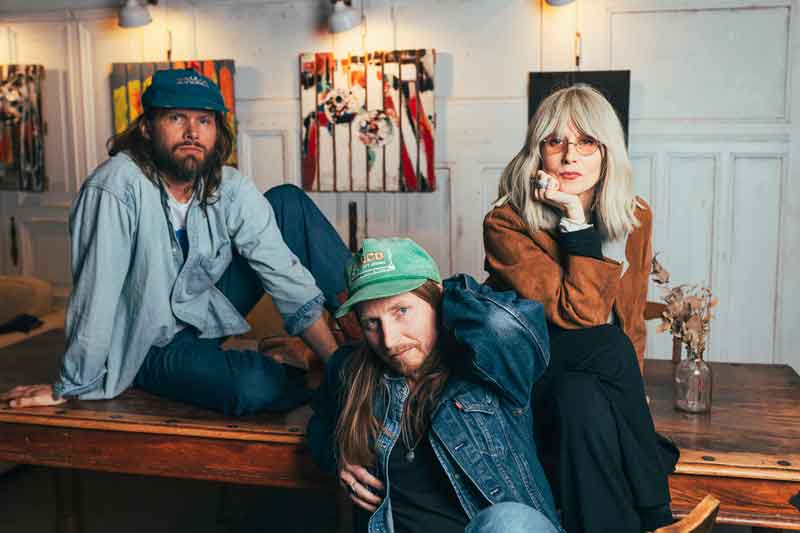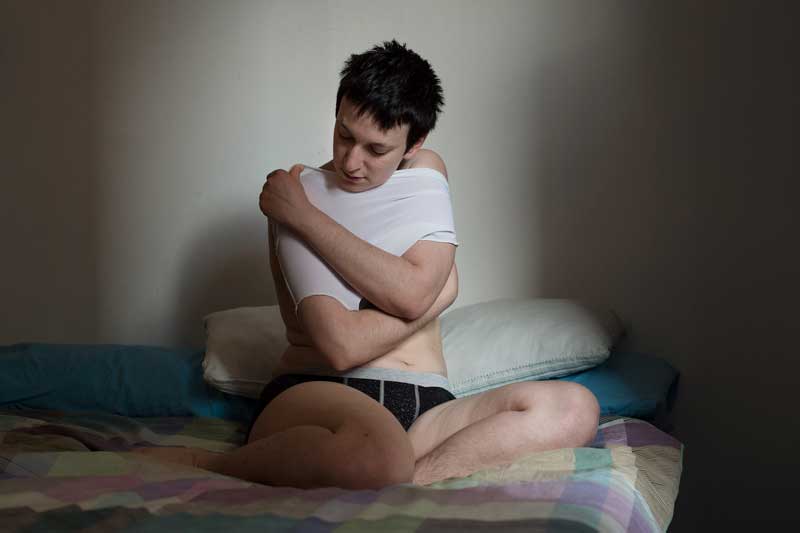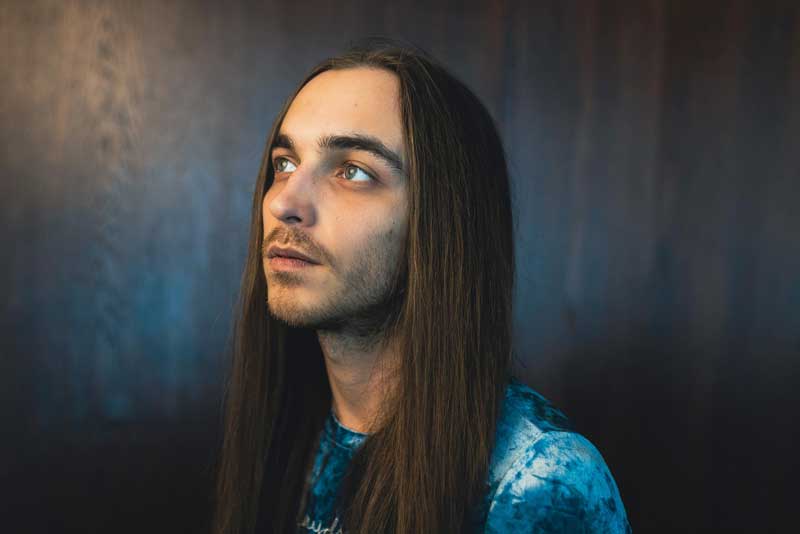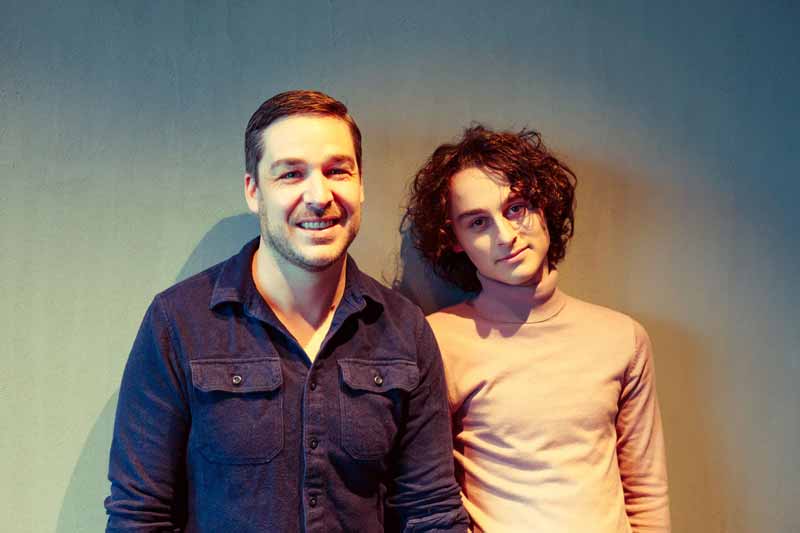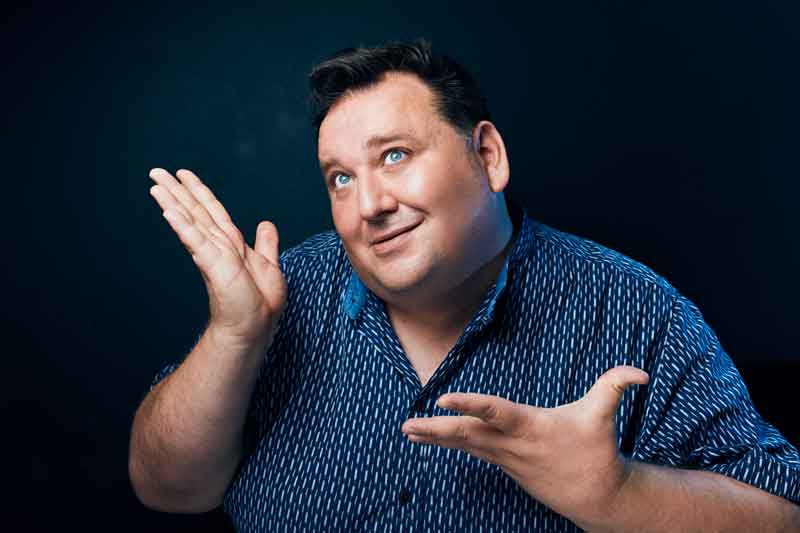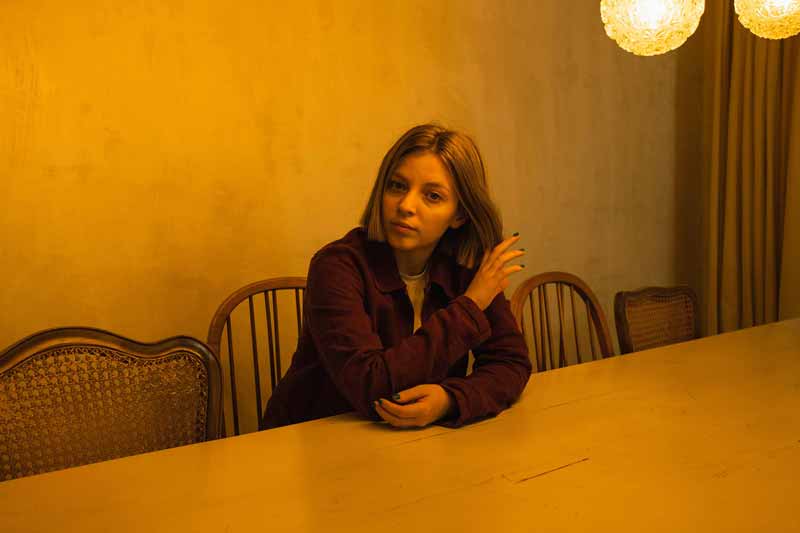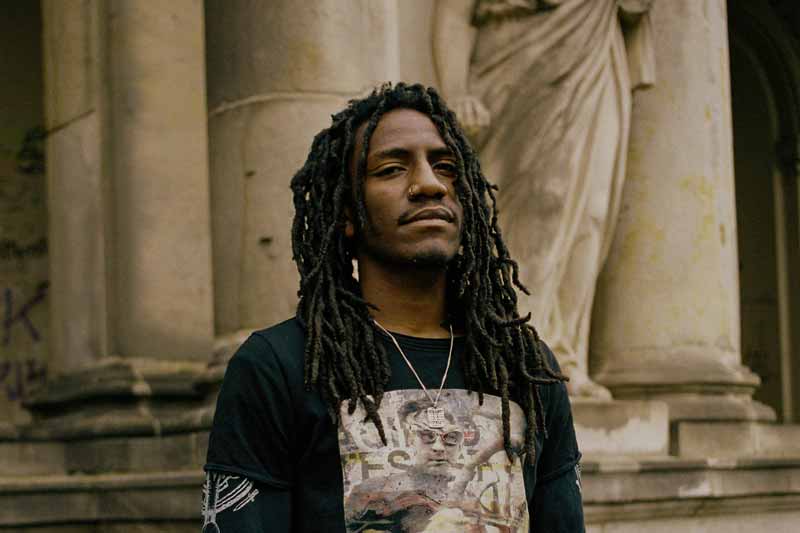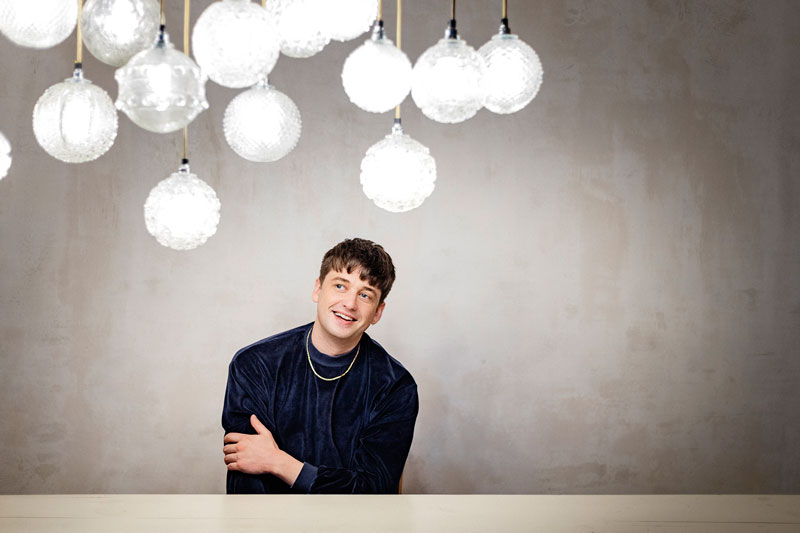Interview — DNKL
Poetic Darkness
If you´re German, you might take a guess, where the band name DNKL is coming from. Find out if your right in the text below – and dive into elements of darkness.
14. Dezember 2014 — MYP N° 16 »My Voice« — Interview: Jonas Meyer, Photography: Maximilian König
Today is one of those days in September where the memories of summer are young and the mercilessly winter still seems to be far away. But we all know the cycle of nature and so we secretly suspect that in just a couple of weeks we will be surrounded by darkness, cold and rain We will come across people with faces that have lost their smile, hidden behind thick coats and walking fast. Wetness will be a steady state – and Umbrellas will be called the best friends you can have. For months.
On this Thursday we don’t want to think about that. Ok, it’s already too cold for a t-shirt – but it’s still too warm for a jacket. So we allow ourselves to have some ice cream while we’re walking along the Dieffenbachstraße in Berlin-Kreuzberg. We’re cozily heading towards the “Verstaerker” public relations agency where we have an appointment with the electronic music artists Claes Strängberg, Jonatan Josefsson and André Laos – or shortly said: DNKL.
A few minutes later, we’re standing in front of a large building with dozens of company plates and a wide entrance gate. At the end of a short, light-absorbing passage, we can see a bright courtyard. Cool, we’ve found it! It’s been a while since we said “Hi!” last time.
Claes, Jonatan and André are sitting in a small meeting room. The welcoming is very friendly, the guys seems to be in a good mood. We have coffee and start our recorder. Nice to see you again!
Jonas:
I remember the last time we met very well: In march of this year, you guys played in the “Heimathafen” in Berlin-Neukölln. DNKL was just a few months old and you presented your first songs. The audience seemed to be captivated by this new and unknown sound, but most of the people – including me – didn’t know how to pronounce your band’s name. Should we speak it out as an acronym? Or should we just say “dunkel”?
Claes:
You can say whatever you like. The word exists in both the German and the Swedish language, so the pronunciation “dunkel” is allowed as well. There’s just a small difference in the meaning: In Germany, the word is part of the everyday language. In the Swedish linguistic usage „dunkel“ is very old-fashioned, and the world doesn’t necessarily describe a dark state. It also means something like mysterious. It’s a very poetic term.
Jonas:
You guys already play in other bands or are part of other projects. Did you feel the need to start something new beside your current artistic activities?
André:
I’ve always made a lot of music in many different bands and I’ve always been interested in electronic dance music, too. I have an own studio in Gothenburg where I spent a lot of time with generating beats. I think doing a lot of different stuff and moving between the genres is absolutely natural for a musician.
Jonatan:
We didn’t say: “We must have another band now!” We like music and we love making music on our own. That’s kind of natural, as André said. And it’s always kind of fun. When André and me got to know each other, we started hanging out and creating sounds. So it came up that we wanted to do something together.
Claes:
A creative musician shouldn’t plan his own artistical development through projects. Sometimes it’s enough to sit anywhere, play around and experiment with some elements. One day Jonatan and I came to André’s studio because we originally had some other things to do there. André showed us a few loops and stuff he had created. It was very cool – and we spontaneously thought that we could try to make songs out of this together.
On the same day, André, Jonatan and me experimented till 5 in the morning. Somehow we played around with dark synthesizer sounds and beats. It was just for fun, we simply liked it. But at the same time we started to get a relationship to the songs, to the special sound and to this whole creative process.
André:
I never actually experienced a process running so smoothly. I think that’s why we all had the same ideas from the beginning.
Claes:
We realized that we compliment each other very well. Each of us is good at his special field of work and benefits from the skills of the others. When I’m done with an idea, I can pass it on to Jonatan or André who bring in their own part in. It basically works like a clockwork. This smoothness is pretty rare. I’ve been playing in bands for so many years and never experienced that way of working together.
Jonas:
Electronic music is an integral part of the European club culture. If you go out, you’re mostly surrounded by this kind of music. That’s the sound we’re dancing to nowadays – and I’m sure you guys do too when you’re in a club in Gothenburg, Stockholm or Berlin. Could it be that you simply built a bridge between your professional life and your leisure habits?
Claes:
Interestingly I never thought about this. We’ve been fans of electronic sounds since we were children. I personally got hooked on this music very early on. But I never felt a need to combine this with my own stuff. At DNKL, it just happened by coincidence when we were experimenting with new things.
Jonas:
Compared to the late 1990s and early 2000s, electronic music is very popular today. This music doesn’t hurt anybody when it’s played in supermarkets or shopping malls – even Coldplay have an electronic track on their new record! Do you think that’s a good development?
André:
In Sweden, a lot of people didn’t want to listen to electronic music till things like Avicii or Swedish House Mafia came up.
Claes:
I think it’s a natural development. In the entire music history there have always been reactions like that – and reactions against these reactions.
André:
And it’s fun. Ten years ago, the kids wanted to get a guitar for Christmas. Today they want a MacBook. And they want to be famous. So many people are making electronic music for no reason. It’s so easy today to get all these tools like Ableton or Logic. With those, you can create a house beat in two seconds.
The audience will never get tired of seeing a real musician doing something live. Music will always survive for its best.
Jonas:
It’s the same with photography. For more and more kids, an expensive photo camera is like an accessory or a lifestyle object. These people don’t reflect that this instrument could enable them to express themselves in an artificial way.
André (laughs):
Yes, they take a picture in the automatic mode and share it online after using an Instagram filter. But to be serious: I think it’s generally a good thing that young people try things out.
Claes:
There’s still a lot of laptop users in the electronic music scene. But nowadays, there is one change you can see: More and more artists bring real instruments on stage. It’s a new development, I didn’t see this even five or six years ago. But it seems to be the next logical step. The audience will never get tired of seeing a real musician doing something live. Music will always survive for its best. That’s the reason why I wouldn’t say that it’s good or bad. Everybody should do what sounds good to him and others.
Jonas:
So you’re in a lucky situation because you’ve learned to play real instruments.
André:
Not having any instrument skills can be a strength, too. When you do a lot of samples and stuff and you don’t know which key you’re playing, the result can be very refreshing and cool.
Jonatan:
No rules, that’s good.
Claes:
But when you’ve learned to play an instrument, it’s much easier to bring organic or acoustic music parts into an electronic track. They’re hard to simulate.
Jonas:
A few weeks ago, I read a very interesting sentence about your band: “DNKL – it’s three guys from Sweden. That’s all you have to know.” Is this really all that people should know about you and your music?
Jonatan (laughs):
About us personally – yes! We’re not that interesting as people. Just three guys who love hanging out, drinking beer and making music.
Claes:
We want the focus to be on the music. The project itself is important, not the personalities or individual stories behind it. Nowadays everytime someone puts up a great track, people directly want to know everything about this person: What is he doing in his private life? What kind of fashion does he like? Is he vegan?
In the beginning of DNKL when we experimented around, we were more touched by the elements of darkness. That’s the reason why we started to make songs out of it.
Jonas:
My question was related to the meaning of the word “dunkel”. This word is highly charged with a range of emotions: It arouses a lot of images, feelings and memories inside of every human. For me it is understandable if people want to find out who’s behind this strong word – and what exactly the personal motivation is of creating such an intense world around the music.
When I’m personally listening to your songs, the same questions come up. Interestingly I’ve been experiencing you guys as very open-minded, funny and laid-back people. Do you use your music to express parts of your character that you wouldn’t show otherwise?
Claes:
That’s how people generally are – including us. For sure, we’re all happy people, but we also carry things with us all the time. A creative process is perfect for expressing things that are maybe happening inside of you. The result can consist of very joyful tracks or of very dark ones. In the beginning of DNKL when we experimented around, we were more touched by the elements of darkness. That’s the reason why we started to make songs out of it.
Some people find that this is melancholic, but I wouldn’t say that. For me personally it is the natural way of creating a song. It doesn’t reflect the way we meet people on the street or hang around with friends. But it is still a huge part of us. If you were to live with us for one year in a cabin, you would experience the depth of our personalities and see that we are more than just three guys coming to Berlin to have fun.
André:
Darkness can be very inspiring. For me, creative processes mainly take place at night. I can’t imagine sitting in the sun and writing songs.
Jonatan:
In Sweden, it’s dark for eight or nine months – everything there is dark and cold as fuck. So what do you do when you go to the Studio? You start making dark beats. It’s the most natural thing I actually know. I generally love it when a sound is dark, wide and mysterious. That’s just me.
Jonas:
The first music video you released – the video to the song “Hunt” – conjured up very sensuous and esthetic kind of darkness. How did the movie idea come up?
Claes:
It was a short movie that already existed. It was created by the German filmmakers Jan David Günther and Bassi Lichtenberg, we found it by coincidence.
André:
We had four movies for inspirational purpose. When we watched this video, we said: “Jesus Christ, this is so good! It fits exactly to the music, to the lyrics, to the mood – to everything! This is our movie! We can’t remake anything similar, we need this!”
We sent Jan an email and told him how much we loved it. Luckily he said exactly the same about our song when he heard it. So he allowed us to cut out 45 seconds of the whole film and cut it to the specific beats. Then it was completed – the whole process was finished in one evening.
Jonas:
Your song “Hunt” is a good example of the fact that music can have a perceptible influence on people’s moods and emotions. Do you experience this as a big responsibility?
Claes:
I like that you call it “responsibility”, but I like the word “privilege” more.
Jonas:
Why?
Claes:
There are a lot of bands and artists – I love some of them very much – that don’t bring any sense to their artistry. In my opinion they waste their talent by just doing things that say nothing. I don’t want to sit on any high horses or anything, but as an artist that maybe has thousands of people all over the world listening to his songs, you should know that music is somehow about communicating something. I mean, for me it’s not about putting in a manifest or changing the world, but every musician should know that bringing any words to a sound just for fun doesn’t make any sense.
That’s the reason why I think it’s an absolute privilege when you’re able to reach people with your music. I always want to say something with the music that I’m a part of – through a song text or just instrumentally.
Jonas:
Are there any songs that are able to touch you and create special moods inside of you?
Jonatan:
Of course, there are many tracks!
Claes:
There are some songs you always go back to.
André:
For me, the most inspirational thing is when you’re in a club, listen to a song and wonder: Is this really music? How can you create this kind of sound? When it totally breaks those barriers that you’re building up – that’s really nice!
Jonas:
Claes, two years ago we met for the first time. We had a beer together after you had played a concert in the “Magnet Club”. You told me that you had to do a side-job in a fashion store to manage your life as a musician. Are you still working other jobs on the side? Or are you now able to focus on your art 100 percent?
Claes:
I’m still working. All of us need to get our lives together, we still have to work in part-time jobs to make it go round. But we’re also giving 100 percent to our music – at the same time.
Jonatan (smiles):
No sleep.
Claes:
But to speak for myself, today I can put more time into music than a couple of years ago.
Jonatan:
The same with me.
André:
I’ve been living off of music for some years, but I was always working in bars, too. In my case, I think it’s not very healthy to live only from that. I’ve done a lot of commercials and stuff, but that’s not the way I want to make music. I don’t want to create any songs and sounds for brands. Then I would prefer to work in a bar.
For us, music is living. It’s a passion, you can’t really turn it off.
Jonas:
Do you still have enough time for living?
Claes:
For us, music is living.
André:
I don’t know anything else. It’s my leisure time, it’s my job.
Claes:
It’s a passion, you can’t really turn it off.
André:
It would be nice sometimes.
Claes:
Some weeks you can have a week off and go on vacations with your girlfriend, some weeks it’s impossible to make it happen.
André:
A week off is impossible – it would mean having vacation from the music…
Claes:
…and you never really do that. You bring it into your head end never turn off the inbox either. But when you love to do it, why stop?
Jonas:
Maybe that’s the only thing people have to know about you.
Claes, Jonatan & André:
Maybe.
We turn the recorder off and have the last sip of our coffee. Claes, Jonatan and André smile contentedly, get up from their chairs and help us pack our stuff. Together we leave the office and look around for a nice location outside. But somehow we can’t find a place where a nice atmosphere could emerge. For a moment, we’re at a loss.
Then, suddenly, we remember the dark, light-absorbing passage at the entrance of the building. The three guys get in position and automatically close their eyes. We take some first photos, have a look at the previews and are astonished: This small passage is able to create a wonderful, nearly magic atmosphere. For the next minutes it is totally silent, the clicking camera shutter is the only thing one can hear.
After all portraits are taken, we say goodbye and promise to join the DNKL concert tonight in Kreuzberg. Claes, Jonatan and André thank us and go back to the agency’s office.
We walk back along the Dieffenbachstraße and again allow ourselves to have some ice cream. Today is one of those days in September where the memories of summer are young and the winter still seems to be far away.
But for now, we can’t wait to be surrounded by some darkness.
Even if it’s poetic.
Claes Strängberg, Jonatan Josefsson and André Laos founded the band DNKL. They are living in Gothenburg.
